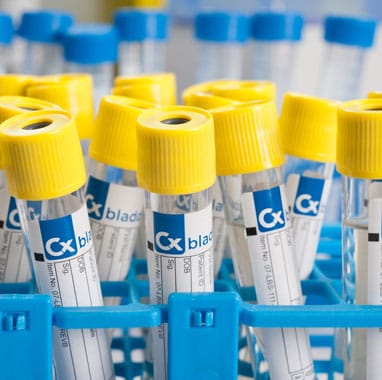Seeing blood in your urine can be startling, especially if you don't know the cause. Though many cases of bloody urine end up being relatively harmless, you should take this symptom seriously and speak to a doctor as it can indicate a serious underlying medical condition.
The medical name for the presence of blood in urine is haematuria. Two types of haematuria exist:
- Microhaematuria: Microhaematuria refers to a presence of blood only visible when looking at a sample under a microscope. Usually, you'll find out you have microhaematuria as the result of a urine dipstick test.
- Macrohaematuria: Macroheamaturia, also called gross haematuria, refers to an amount of blood you can see yourself as a pink or red colouration.
How Common Is Having Blood in Your Urine?
If you have haematuria, you are not alone. Up to one in five people in the general population will be experiencing haematuria at any given time.
Common Causes of Blood in Urine
A number of factors can cause or create the appearance of blood. Certain foods like beetroot, blackberries, blueberries, and rhubarb, can turn urine red or pink. Some drugs may also cause discolouration.
After determining whether or not the colouring in your urine is actually blood, your doctor will likely recommend tests to determine the cause of your haematuria. Many medical conditions and other physical factors can contribute to haematuria, including:
- Bladder Cancer: Haematuria is the most common symptom of bladder cancer and often the first sign.
- Bladder or Kidney Stones: Bladder and kidney stones are composed of crystals that accumulate on the walls of the bladder and kidneys. Passing these stones can lead to severe pain, as well as gross and microscopic haematuria.
- Urinary Tract Infections: Usual symptoms of urinary tract infections include burning pain and a frequent urge to urinate. However, they can also cause haematuria.
- Kidney Infections: Like urinary tract infections, kidney infections can lead to haematuria, as well as other symptoms. Kidney infections can also cause fever and pain in the upper abdomen, back and sides.
- Kidney Injuries: If you've recently suffered an impact to one of your kidneys, either through sports or an accident, this injury could cause visible blood in your urine.
- Other Factors: Monthly periods, sexual activity, vigorous exercise and viral illness can all sometimes cause blood to appear in urine.


Find the Cause of Your Haematuria
If you ever notice blood or red discolouration in your urine, it's a good idea to schedule an appointment with your doctor — especially if it persists for more than a few days. Seeking advice from a trusted medical professional will allow you to determine the cause of your haematuria.
If You're Concerned About Bladder Cancer, Ask Your Doctor About Cxbladder
Cxbladder is an easy-to-use and non-invasive test designed to help rule out urothelial bladder cancer, the most common form of the disease, in patients experiencing blood in urine. Cxbladder is an advanced genomic urine test that analyses five biomarker genes. The test delivers exceptional performance and meaningful results, reducing the need for further invasive procedures when you're at a low risk of disease.
Ask us a question Learn more about Cxbladder
Last Updated: 24 Jul 2024 12:57 pm
Browse Our Latest Blog Articles
Blood in Urine: A Patient's Story
Errol had blood in his urine. Find out how he ruled out bladder cancer and got peace of mind.

-

Talk to your doctor
Are you alarmed about blood in your urine? Worried about bladder cancer? Download our patient discussion guide for a list of questions you can ask your doctor.
Download discussion guide now -

What is Cxbladder?
Cxbladder is a family of non-invasive tests that quickly and accurately detects and diagnose bladder cancer, giving you peace of mind.
Learn more about Cxbladder -

Get Cxbladder
Cxbladder is a suite of non-invasive tests that is easy and straightforward to use. Talk to your doctor or order online today.
Order Cxbladder now







